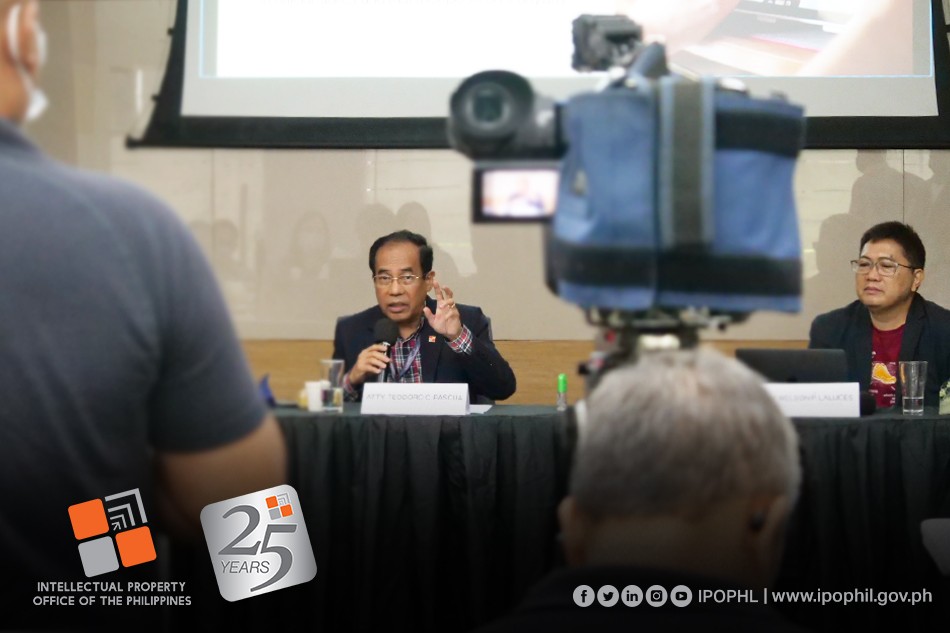
Counterfeiting and piracy reports, complaints decline in 2022
December 14, 2022
The Intellectual Property Office of the Philippines (IPOPHL) received a total of 92 reports and complaints on counterfeiting and piracy in the January to November 2022 period, marking a 40% decrease from the 153 recorded reports and complaints in the comparable period last year.
Latest data from the IP Rights Enforcement Office (IEO) breaks this down to 70 counts of counterfeiting and 22 of piracy.
Counterfeiting accounted for 75% of the total reports and complaints received, as apparel (shoes, clothes, bags and eyewear) remains to be the most counterfeited goods in the market with a share of 61.9%. This was followed by perfume and beauty products (7.9%); gadgets (7.9%); food (4.8%); home items (4.8%); automotive materials (3.2%); cigarettes (3.2%); and pharmaceuticals/medical products (1.6%).
Software now tops the list of concerns for piracy, making up 33.3%. Shows and movies follow with 28.6%; artworks and paintings (19%); general eBooks (14.3%); educational books and eBooks (4.8%).
Concerned citizens continued to be the most active intellectual property (IP) violation reporters with 76.1% of total reports but IPOPHL is also beginning to see brand-owners take charge of IP rights reports and complaints, making up 23.4% of reporter classification.
Deputy Director General Teodoro C. Pascua attributes the decrease in complaints and reports received to partnerships, such as the successful 2021 E-commerce Memorandum of Understanding (MOU) between e-commerce platforms and brand owners, aiming to establish more efficient notice and take-down procedures and preventive measures on platforms.
“Our e-commerce continues to succeed with the help of partner brand-owners and industry groups. IPOPHL is pleased to see that platforms are constantly improving the mechanisms needed to combat counterfeiting and piracy,” said Pascua.
To recall, the e-commerce MOU has resulted in more aggressive efforts against infringers and louder calls for more digital economy players to join the MOU.
Meanwhile, the online space remains to be the leading source of IP violations.
Facebook still tops this list, making up for 60.6% of online reports and complaints. This was followed by Other Websites (15%); Shopee (12.1%); Instagram (6%); and Lazada (5%).
“Consumers are advised to be wary of fake and pirated goods, especially during the holiday season. The public is encouraged to maximize e-commerce platforms’ takedown mechanisms and the IPOPHL reports and complaints channels,” Pascua noted.
Concerned citizens and rights owners may submit their reports via e-mail (operations@ipophil.gov.ph), mobile phone (+639950220522) or the IEO Facebook page.
To intensify its fight against counterfeiting and piracy in 2023, the IEO will push to implement faster site-blocking by issuing the rules for an expedited process in disrupting access to IP-infringing websites and forging a partnership with the internet service providers (ISPs) to facilitate the blocking process.
Moreover, the IEO will establish a case tracking system for profiling IP violators, identification of predicate crimes and generation of IP case statistics to monitor trends.
Aside from increasing awareness on the importance of respecting IP rights, the IEO will continue enjoining government agencies and educational institutions to set up their Anti-Counterfeit and Anti-Piracy Policies (ACAPP).
An ACAPP encourages all actors within a community to be aware of the harms of counterfeiting and piracy to the business, livelihoods and the economy so as to ensure that the policies and actions their offices issue are compliant with existing IP laws and regulations.
The National Committee on IP Rights (NCIPR), which is led by IPOPHL as Acting Chair, is aiming to see 50 national agencies and 18 local government units (LGUs) with an ACAPP by 2025.







